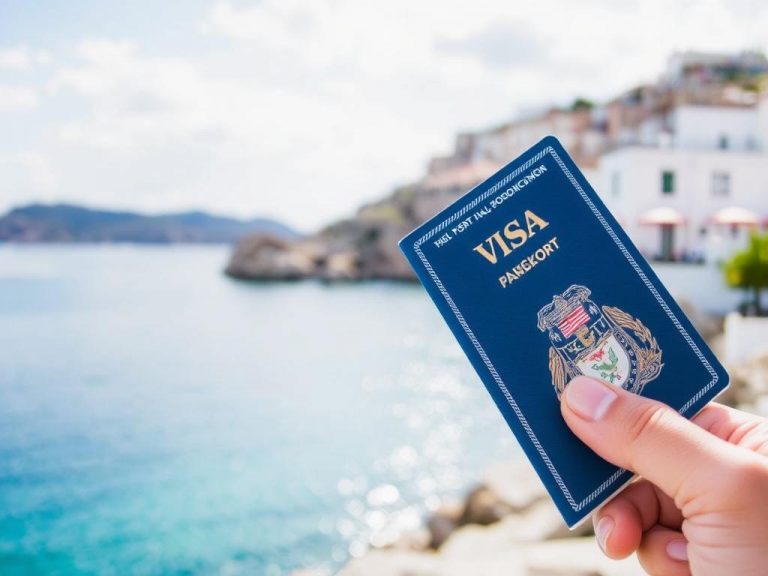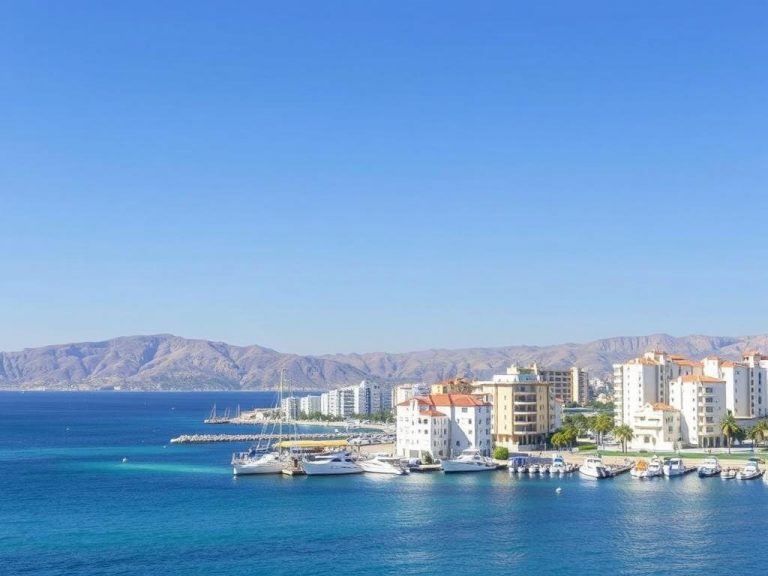Cyprus Visa Requirements by Nationality: Complete Guide
Cyprus, a Mediterranean island nation known for its rich history, vibrant culture, and stunning landscapes, attracts millions of visitors annually. Whether for tourism, business, or long-term residence, understanding the visa requirements is essential for a smooth entry process. The visa rules vary significantly by nationality, making it crucial to identify which category your country falls under. This comprehensive guide unpacks every detail you need to know about Cyprus visa requirements by country, passport validity Cyprus guidelines, the documentation checklist Cyprus applicants must prepare, and how to correctly fill application forms Cyprus authorities require.
For travelers, students, and professionals looking to enter Cyprus, the visa policies aim to balance facilitation and security. Knowing your eligibility beforehand reduces delays and simplifies processing. This article provides detailed information on visa exemption lists, types of visas available, as well as country-specific procedures. It also highlights vital factors such as passport validity Cyprus stipulations and essential supporting documents to complete your submission successfully.
Understanding Cyprus Visa Policy Framework
Cyprus, as a member of the European Union but not fully part of the Schengen Area, implements visa policies that align with both EU guidelines and national security interests. The visa requirements by country Cyprus applies depend mainly on bilateral agreements, and the political and economic relationships Cyprus holds globally. Nationals of certain countries benefit from visa exemptions, while others must apply for short-stay or long-stay visas depending on their purpose of travel.
The visa system in Cyprus is designed to accommodate a wide range of travelers—from tourists to seasonal workers, students, and expatriates seeking permanent residence. However, access norms vary markedly, emphasizing the importance of understanding the classification of your nationality.
Visa requirements in Cyprus are highly nationality-dependent, underscoring the necessity of verifying your country’s specific rules before planning your trip.
For instance, citizens from EU member states enjoy relatively relaxed entry norms compared to nationals from countries outside the EU and visa-free zones. Third-country nationals often must comply with more stringent requirements, including prior visa issuance, biometric data provision, and proof of financial means or invitation letters.
Visa Exemption and Visa-Free Entry Nationals
Citizens of the European Union, including countries like Germany, France, Italy, and Greece, do not require a visa for short stays in Cyprus (up to 90 days). Similar exemptions extend to nationals of other countries with which Cyprus has established visa waiver agreements. These exemptions apply primarily to tourists, business visitors, and short-term travelers.
Other nationalities benefiting from visa-free entry include citizens from the USA, Canada, Australia, and a selected list of countries in Asia and Latin America. However, it is crucial to confirm the validity period of travel without a visa, as terms differ by country.
Essential Details of the Visa-Free Regime
Travelers from eligible countries must still comply with passport validity Cyprus standards and may be asked to present proof of onward or return tickets, travelers’ insurance, or proof of accommodation. Although a visa is not required, failure to meet these requirements can lead to refusal of entry.
Visa exemption does not mean unrestricted entry; satisfying passport validity and documentation requirements is critical for all travelers.
Countries Requiring a Visa to Enter Cyprus
For nationals of many countries classified as visa-required, obtaining a visa prior to travel is mandatory. These individuals must submit their application forms Cyprus embassies or consulates process well in advance of travel dates.
Examples of countries whose citizens require visas include India, Nigeria, Pakistan, and several others from Africa, Asia, and Eastern Europe. The specific visa type depends on the purpose — tourist, business, study, or work. Failure to obtain the appropriate visa leads to denied boarding or entry.
Passport Validity Cyprus Requirements
A passport’s validity is a critical factor in the Cyprus visa process. Across all categories of visitors, Cyprus mandates that passports must be valid for at least six months beyond the intended date of departure from the country. Failure to meet this requirement is a common reason for entry denial.
This standard aligns with international norms intended to ensure travelers can exit the country and re-enter their home or onward destination without complications. Some exceptions may apply to specific visa categories or nationals from visa-exempt countries, but it is always safer to comply with the six-month rule.
Always check passport expiration dates well in advance to align with Cyprus’s six-month validity rule—this is non-negotiable for most travelers.
Besides passport validity Cyprus rules, the passport must be in good condition, bearing at least one blank visa page for the visa sticker or stamp. Damaged or altered passports often lead to application rejection or entry refusal.
Documentation Checklist Cyprus Visa Applicants Must Prepare
Gathering the right documents is often the most challenging step in a visa application. Cyprus’s authorities require a comprehensive documentation checklist Cyprus applicants must follow closely. Accurate document submission accelerates processing and reduces requests for additional paperwork.
While documentation varies by visa type and nationality, the core requirements broadly include the following:
- Completed and signed application forms Cyprus consular services provide.
- Valid passport compliant with Cyprus’s passport validity Cyprus rule.
- Recent passport-sized photographs matching biometric criteria.
- Proof of accommodation during stay (hotel reservation or invitation letter).
- Return or onward travel tickets.
- Travel health insurance covering the entirety of the stay.
- Evidence of sufficient financial means to support the stay (bank statements, sponsorship letters).
- Application fee payment receipt.
Additional documents may be required depending on the visa category: employment letter for business visas, enrollment proof for student visas, or residence permits for long-term stays. Each consular office might have unique specifications or supplementary requests.
Submitting a full and accurate documentation package is essential to avoid costly delays and rejections in the Cyprus visa application process.
How to Correctly Fill Application Forms Cyprus Requires
The application forms Cyprus visa applicants complete initiate the official evaluation process. Accurate, complete, and legible form filling is vital. Errors, omissions, or inconsistencies often lead to processing delays or outright rejections.
The forms inquire about personal information, travel details, purpose of visit, financial status, and prior travel history. In many cases, applicants must state their exact itinerary and intended length of stay.
Bear in mind the following pointers when handling application forms Cyprus submits to authorities:
- Use black or blue ink for manual forms, or follow typing instructions for online submissions.
- Double-check spelling of names, dates, and passport numbers.
- Answer all mandatory questions; leave no required fields blank.
- Attach all requested supporting documents as per the documentation checklist Cyprus outlines.
- Sign and date the form where required, matching the signature on your passport.
Many applicants benefit from consulting official consular websites for the latest application forms Cyprus accepts, as formats and requirements may change. Submitting outdated or incorrect versions can cause unnecessary setbacks.
Taking time to carefully complete and review your application forms Cyprus authorities request significantly improves approval chances.
Types of Cyprus Visas by Nationality and Purpose
Cyprus offers various visa types depending on the nationality of the applicant and the purpose of the trip. The officers carefully evaluate each application to match the visa type to the traveler’s intent.
Broadly speaking, the main visa categories include:
- Short-Stay Visa (Type C): For tourists, business visitors, and family/friend visits lasting up to 90 days.
- Long-Stay Visa (Type D): For students, employees, or those moving to Cyprus for residence for more than 90 days.
- Transit Visa: For travelers passing through Cyprus to another destination.
Each nationality either qualifies for these visas through streamlined processes, visa exemption, or requires thorough documentation and interviews, depending on bilateral agreements and country risk profiles.
Short-Stay Visa Eligibility by Country
Applicants from countries listed under “visa-required” must apply for a short-stay visa to enter Cyprus as tourists or for short business visits. The application involves an interview at the relevant consulate or embassy and submission of the documentation checklist Cyprus mandates.
Conversely, applicants from visa-exempt countries may only need to carry documents proving the purpose of visit and sufficient resources. However, they must adhere strictly to the entry duration stipulated.
Long-Stay Visa Categories and Requirements
Those seeking to study, work, or settle longer in Cyprus must apply for a long-stay visa, which involves more complex procedures. The documentation checklist Cyprus requires includes acceptance letters, employment contracts, proof of accommodation, and sometimes health clearance reports.
Nationalities from countries with higher immigration risk profiles may undergo increased scrutiny or additional security checks.
Processing Timeframes and Visa Fees
The time taken to process Cyprus visa applications varies based on nationality, visa type, and completeness of the submitted application. Generally:
- Short-stay visa applications are processed within 10 to 15 working days.
- Long-stay visa applications can take up to 1-3 months depending on complexity and background checks.
Visa fees also vary by nationality and category, always payable in local currency at the consulate or embassy.
It is advisable never to book non-refundable travel before visa approval and to apply well ahead of the planned travel date. Missing deadlines can cause costly rescheduling or denial of trips.
Early application submission and fee payment are crucial steps to prevent delays or denial when applying for Cyprus visas.
Common Reasons for Cyprus Visa Denial
Understanding common pitfalls can prepare applicants better and increase their success rate. Major reasons for Cyprus visa denial include:
- Incomplete or inaccurate application forms Cyprus officials receive.
- Failure to meet passport validity Cyprus standards.
- Insufficient or unverifiable documentation such as financial proofs.
- Previous visa overstays or immigration violations.
- Inconsistent or unclear travel purpose.
- Unpaid or improperly paid visa fees.
Applicants advised to carefully review all instructions, obtain correct forms from official sources, and prepare a complete documentation checklist Cyprus requires before submission.
Special Considerations for Diplomatic and Official Passports
Holders of diplomatic, service, or official passports often enjoy relaxed entry norms due to diplomatic agreements. Many countries’ official passport holders can enter Cyprus visa-free for specific periods even if their regular passport holders require visas. However, they should still comply with passport validity Cyprus rules and carry proper authorization documentation.
How to Track and Follow Up on Your Cyprus Visa Application
After submission, most Cyprus consular services provide tracking options using submission reference numbers. Applicants are encouraged to use these tools to monitor processing progress. In cases of additional document requests or interview scheduling, timely responses ensure no unnecessary delays.
Applicants whose visas are approved will receive instructions on how to collect their passports and visas, usually from consulates or designated visa centers. It is essential to verify all visa details immediately upon receipt for accuracy.
Active tracking and timely response to consular requests enhance the Cyprus visa processing experience significantly.
Final Insights: Navigating Cyprus Visas With Confidence
For anyone planning to travel, study, work, or reside in Cyprus, understanding the distinct visa requirements by country is the cornerstone of a successful application. Aligning with passport validity Cyprus requirements and diligently assembling the documentation checklist Cyprus consulates require reduces risks of refusal and delays. Carefully filling application forms Cyprus authorities provide and staying informed about your specific national regulations fosters a stress-free process.
Cyprus offers opportunities of rich cultural exchange and economic engagement. By approaching the visa application with clarity and precision, applicants open doors to seamless entry and fruitful stays in this unique Mediterranean country. Preparation is not just procedural—it is the key to unlocking Cyprus’s potential for you.
Preparation + Precision + Patience = Your Passport to Cyprus’s Opportunities.
Frequently Asked Questions
- Do all nationalities need a visa to enter Cyprus?
No, nationals from EU countries and certain others like the USA and Canada have visa-free entry for short stays. Others must apply for a visa beforehand. - What is the passport validity requirement for entering Cyprus?
Cyprus requires passports to be valid for at least six months beyond the intended departure date from Cyprus. - Where can I get the official application forms Cyprus requires?
Application forms are available from Cyprus consulates, embassies, or their official websites. - What documents are generally needed for a Cyprus visa application?
A valid passport, completed application form, photographs, proof of accommodation, travel tickets, travel insurance, financial proof, and visa fee payment receipt are common requirements. - How long does the Cyprus visa process usually take?
Short-stay visas typically process within 10-15 working days, while long-stay visas can take 1-3 months. - Can I apply for a Cyprus visa on arrival?
Cyprus does not generally offer visa-on-arrival services except for certain nationalities under specific circumstances—it’s safer to check before travel. - What should I do if my Cyprus visa application is rejected?
Review the reasons for rejection, correct any errors or missing documents, and consider reapplying. Seeking advice from consular officials or visa experts is recommended.







